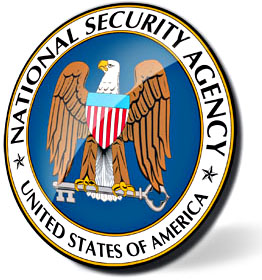 Tech companies, under pressure from foreign users who want to know if their accounts are routinely under surveillance by U.S. intelligence agencies, have been begging the federal government to allow them to release general figures on how many FISA requests they get. The feds haven’t allowed them to do that yet, but they have allowed them to release a bit of information:
Tech companies, under pressure from foreign users who want to know if their accounts are routinely under surveillance by U.S. intelligence agencies, have been begging the federal government to allow them to release general figures on how many FISA requests they get. The feds haven’t allowed them to do that yet, but they have allowed them to release a bit of information:
Over the last six months of 2012, Facebook said, it had received as many as 10,000 requests from local, state and federal agencies, which impacted as many as 19,000 accounts. Facebook has 1.1 billion accounts worldwide. Microsoft said that it received between 6,000 and 7,000 similar requests, affecting as many as 32,000 accounts.
The companies said some of the requests were for terrorism investigations. But others were from a local sheriff asking for data to locate a missing child or from federal marshals tracking fugitives. From these statements, it was impossible to ascertain the scale of the FISA requests made by the National Security Agency.
….That the company would rush to release a figure that gives the public little idea of the scale of the FISA requests is a sign of the pressure it has been under since the PRISM program was made public.
I’m not surprised at all that Facebook and Microsoft rushed to release this information. Their motivation is simple: they want to demonstrate that they aren’t providing NSA with broad access to every foreign account holder in their systems, and even this partial release pretty much does that. In Facebook’s case, they get requests covering about 38,000 accounts per year, which suggests that FISA warrants cover maybe 30,000 accounts or so, most of them foreign. At a rough guess, Facebook has about 900 million non-U.S. accounts, of which perhaps half are truly active. This means that NSA surveils about .01 percent of their active foreign accounts each year. There’s obviously some guesswork in this estimate, but I think it gets us in the right ballpark.
The fact that Facebook and others have begged the government to allow them to release more detailed information is a clue all by itself that the number of surveilled accounts isn’t huge. If they were handing over data on millions of accounts, they wouldn’t be eager for the world to know it.
However, it’s worth noting that Google hasn’t yet made this partial information public, saying that they wanted to wait until they could release more detailed breakdowns. This might be genuine on their part, or it could suggest that the raw number of warrants served to Google is more dramatic than it is for Facebook or Microsoft. After all, Gmail might be a lot more interesting to NSA than a Facebook timeline. We’ll have to wait and see.















